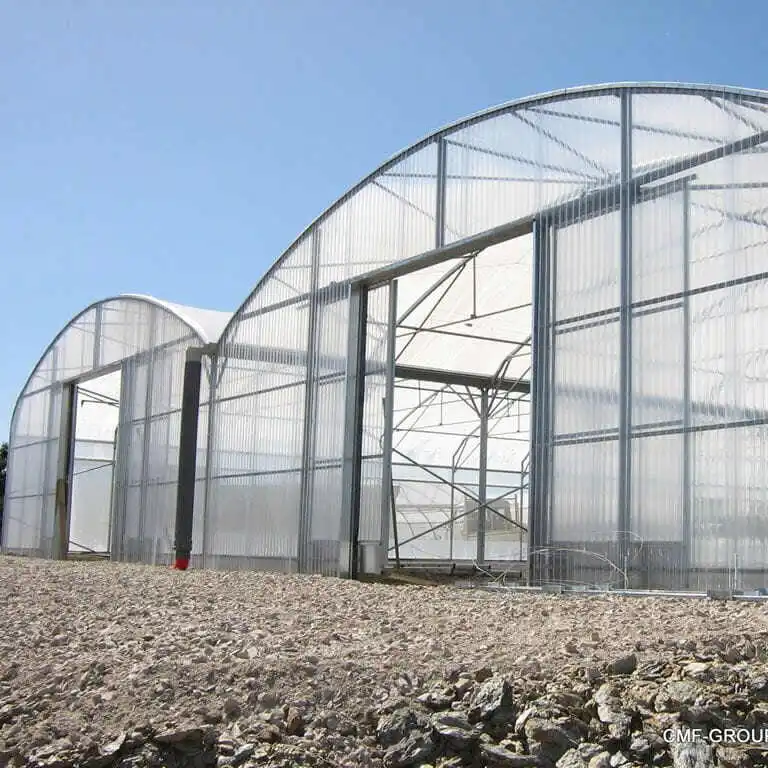Polycarbonate greenhouses have gained widespread recognition as a preferred choice for plant cultivation across various industries. The unique properties of polycarbonate sheets have made these greenhouses indispensable in meeting the diverse needs of growers. In this article, we will explore the applications of polycarbonate greenhouses, highlighting their usage in agriculture, horticulture, research, and urban farming.
I. Agriculture
- Commercial Crop Production:
Polycarbonate greenhouses are extensively used in commercial agriculture for the cultivation of a wide range of crops, including vegetables, fruits, flowers, and herbs. These greenhouses create a controlled environment that allows year-round production, protection from harsh weather conditions, and improved crop quality and yields. - Nursery and Seedling Production:
Polycarbonate greenhouses provide an ideal environment for nurturing young plants and seedlings. The controlled conditions, coupled with the superior light transmission and insulation properties of polycarbonate sheets, promote healthy growth, faster development, and increased survival rates.
II. Horticulture
- Floriculture:
Polycarbonate greenhouses are widely employed in the floriculture industry for growing flowers and ornamental plants. The optimal light diffusion and UV protection offered by polycarbonate sheets contribute to vibrant flower colors, extended blooming periods, and enhanced marketability. - Plant Propagation:
Polycarbonate greenhouses are used for plant propagation, including the rooting and grafting of plant cuttings. The controlled environment ensures high success rates, rapid root development, and healthy plant establishment, which are essential for commercial nurseries and horticultural businesses.
III. Research and Education
- Botanical Gardens and Research Institutions:
Polycarbonate greenhouses find applications in botanical gardens and research institutions, where the focus is on studying plant species, conservation efforts, and conducting experiments. These greenhouses provide a controlled environment for replicating specific climatic conditions, facilitating research and promoting biodiversity conservation. - Educational Institutions:
Polycarbonate greenhouses are utilized in educational institutions, such as schools and universities, to foster hands-on learning experiences for students. They serve as valuable resources for teaching plant biology, horticulture, and sustainable agriculture practices.
IV. Urban Farming
- Rooftop and Vertical Farming:
Polycarbonate greenhouses are employed in urban farming initiatives, including rooftop and vertical farming systems. These greenhouses maximize space utilization, allowing year-round cultivation in urban environments. The lightweight and durable nature of polycarbonate sheets make them suitable for constructing greenhouses on rooftops and vertical structures. - Community Gardens and Local Food Production:
Polycarbonate greenhouses play a crucial role in community gardens and local food production projects. They enable communities to grow fresh produce year-round, promote food security, and foster a sense of community engagement and sustainability.
Polycarbonate greenhouses have found diverse applications in agriculture, horticulture, research, polycarbonate green house and urban farming. Their usage spans from commercial crop production and nursery operations to floriculture, research institutions, and innovative urban farming endeavors. The exceptional properties of polycarbonate sheets, including insulation, light transmission, and durability, make these greenhouses indispensable in enhancing plant cultivation, fostering research, and supporting sustainable food production across various industries.
